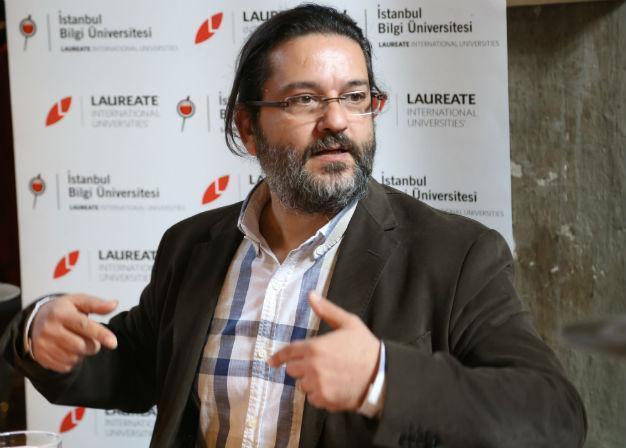Turkey’s Bilgi University joins CERN’s efforts to unlock dark matter
ISTANBUL - Anadolu Agency

AA photo
Turkey’s Istanbul Bilgi University has begun collaboration with the European Organization for Nuclear Research, also known as CERN, to become part of its Atlas experiment, which aims to observe dimensions and particles that could make up “dark matter” - a mysterious substance that is believed by researchers to make up most of the universe.
In March, Istanbul Bilgi University became CERN’s project coordinator at the national level, an effort which will advance scientific and technological fields in the country, according to the project’s coordinator, Prof. Serkant Ali Çetin, who announced the details of the collaboration at a press conference on the university’s campus on April 13.
“As the project’s national coordinator, Bilgi will coordinate all scientific efforts at the national level that are conducted with regards to the Atlas experiment,” Çetin said, adding that nearly 30 scientists would contribute to the “umbrella” project carried out by the university. The Turkish Atomic Energy Authority (TAEK), the country’s official nuclear energy institution, will also provide support to the project.
“Our aim is to make sure [Turkey’s] industry and economy benefits at the maximum level from the technological developments which are triggered by research,” Çetin said, adding the country has begun to contribute greatly towards cooperation in the field of technology since becoming an associate member of CERN on May 2015.
The professor also remarked that the university recently inaugurated the country’s first center for high energy physics in an effort to conduct comprehensive research in the field and train qualified specialists.
“Our priority target is to train expert human resources in the field of high energy physics and contribute to forming an infrastructure in the country with a strong research team,” he said, adding the center will start hosting informative open-house conferences on science, in line with its mission.
The university will also host the CERN Accelerator School, which has been providing training in particle physics for 30 years, in September – a first in Turkey. Moreover, it will join another important project by CERN, the CAST Axion Solar Telescope experiment, which searches for hypothetical particles called “axions” that can be found in the center of the Sun.
CERN’s laboratories near Geneva contain accelerators which make particles collide with each other at almost the speed of light, which gives scientists clues about how the universe works and an understanding of the laws of nature.
In 2012, experiments at CERN’s Large Hadron Collider in Geneva concluded that they had discovered a new particle – the Higgs Boson.
Physicists Francois Englert and Peter Higgs were awarded the Nobel Prize in Physics in 2013 “for the theoretical discovery of a mechanism that contributes to our understanding of the origin of mass of subatomic particles.”
